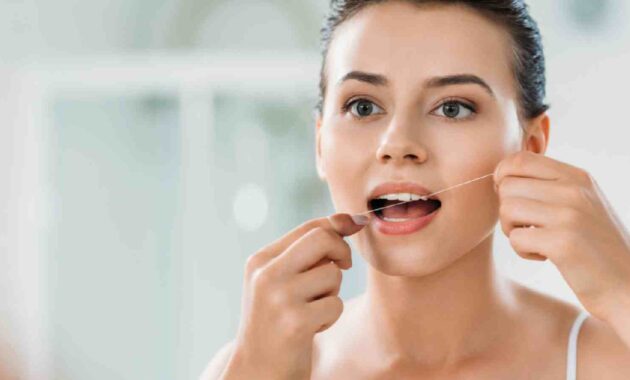The importance of morning and night-time brushing is hammered into our heads. So, we brush after waking up and before going to bed without fail. But between those hours, we eat and drink. It is natural for food particles get stuck in teeth. Sometimes rinsing helps, but if a toothpick is easily available, most people end up using it. Some people carry dental floss to remove the stubborn food particles. Is dental flossing better than toothpicks? Let’s find out what an expert has to say about it.
To find out if dental floss is better than a toothpick, Health Shots connected with Gurugram-based prosthodontist Dr Shveta Setia Thareja.

Post-meal cleaning tools
Some people have a habit of using a floss or a toothpick after eating to maintain oral hygiene. While floss and toothpicks both serve as post-meal cleaning tools, their effectiveness and suitability varies. Dr Thareja says that flossing is often thought to be preferable because it can reach the tight crevices between teeth where food particles and plaque gather. Flossing eliminates debris and helps in the prevention of gum disease and tooth decay. Toothpicks, on the other hand, are better at dislodging large food particles that have become caught between teeth, but they might not efficiently remove plaque or reach deep crevices.
Toothpick vs dental floss
When it comes to oral hygiene, both toothpicks and floss have their own advantages and disadvantages. Toothpicks are a quick and easy way to remove bigger food particles caught between teeth. Even so, they might not be successful at cleaning narrow places or removing plaque. Floss, on the other hand, can reach areas that toothpicks cannot, eliminating debris and lowering the risk of gum disease and tooth decay.
Flossing is quite effective, but it demands more time and dexterity. Also, inappropriate usage of toothpicks or floss might cause gum discomfort or injury.
The expert says that a balanced strategy including both the instruments can optimise dental health. Floss can serve as the primary way for thorough cleaning and toothpicks can be used selectively only when necessary.
Is water flosser better for dental care?
The water flosser, which dentists call the oral irrigator, is an alternative to standard dental floss and toothpicks. Dr Thareja says it uses a stream of water to remove dirt and plaque from between teeth and along the gumline. Water flosser can be extremely beneficial to those with braces, implants or sensitive gums.
It provides a gentle and effective cleaning procedure that reaches regions that floss and toothpicks can neglect. Yet, there are significant health concerns linked with the improper application of a water flosser. Excessive pressure or an improper technique could result in gum damage or even push bacteria deeper into the gums. So, it is essential to follow the instructions and check with a dental professional to ensure safe and effective use.

Tips to maintain oral hygiene
Be it a floss or toothpick, including them into an oral hygiene routine can be useful. But you have to do more than that for strong and healthy teeth and gums. Here are some helpful tips:
• When you brush your teeth twice a day, use a soft-bristled toothbrush. This will ensure that your gumline and all tooth surfaces are clean.
• Consider using an antibiotic mouthwash to get rid of bacteria and refresh your breath.
• Eat a balanced diet as it promotes overall dental health, and reduce sugary and acidic foods and beverages to help to prevent tooth decay.
• Go for six-monthly dental tests to enable professional cleanings, early issue detection and recommendations by your doctor.
Follow these tips so that your dental hygiene stays in good shape.
#Floss #toothpicks #Whats #oral #hygiene
